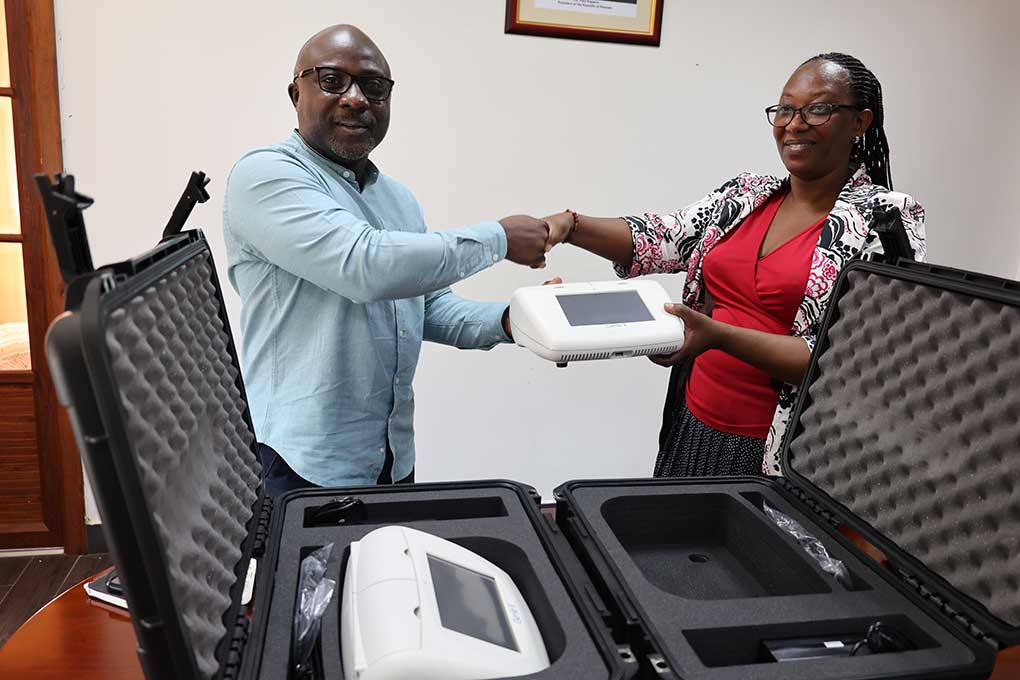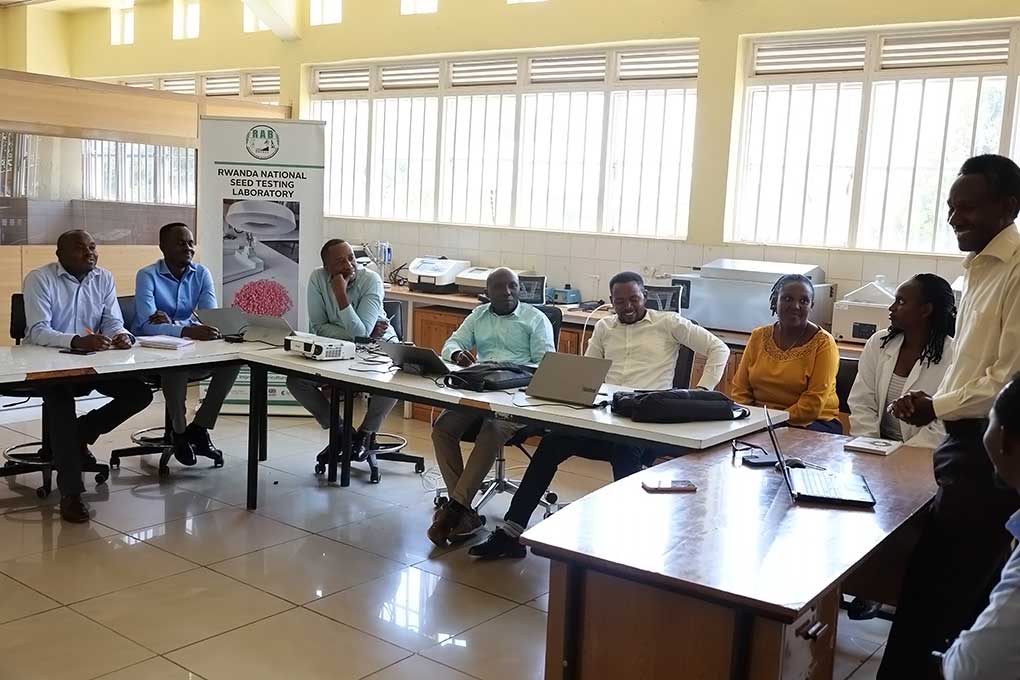
IITA Country Representative, handing over the LAMP devices to RICA Ag. DG
In a significant stride towards bolstering Rwanda’s cassava farming sector, the International Institute of Tropical Agriculture (IITA), on Wednesday 04 October 2023, handed over two LAMP technology devices to the Rwanda Inspectorate, Competition and Consumer Protection Authority (RICA). Receipt and use of these innovative devices by RICA represents improved capacities for cassava diseases diagnostics as a crucial step in the inspection and certification of early-generation seed in Rwanda. Quality early generation seed is a very critical driver of entire seed value chain in delivering clean seed to the farmers.
Cassava, a staple crop in Rwanda, has been increasingly affected by various diseases, posing a significant threat to food security and the livelihoods of smallholder farmers. The importance of cassava in Rwanda’s agricultural landscape cannot be overlooked. It not only contributes to the nation’s food.
supply but also plays a vital role in its economy, particularly in rural areas. Therefore, addressing the diseases affecting cassava is pivotal for ensuring a good yield, a stable market, and the overall well-being of communities.
The LAMP (Loop-Mediated Isothermal Amplification) devices donated by IITA are set to revolutionize cassava disease diagnosis in Rwanda. These devices are invaluable tools that will enable Rwandan seed inspectors to pinpoint various aspects of cassava crop, particularly the presence of viral and other diseases. Viruses, widely known for their ability to hide within plants, necessitate constant testing to minimize their spread and enable early intervention.
Beatrice Uwumukiza, the Director General of RICA, expressed her gratitude, saying, “I thank IITA and CGIAR for the continued support provided to RICA, including the training for our staff and providing us with these important devices that will complement our activities. Our inspectors will now be able to conduct diagnostics, make informed decisions, and provide prompt feedback to seed entrepreneurs. We look forward to further collaboration with IITA and indeed CGIAR in Rwanda, benefiting not only RICA but also the Ministry of Trade and the Ministry of Agriculture, as well as the Rwanda Agriculture Board.”
Konlambigue Matieyedou, the IITA Country Representative, shed light on the organization’s objectives in Rwanda, aligning them with the Government of Rwanda’s Strategic Plan for Agriculture Transformation 4 (PSTA 4). “IITA’s intervention aims to establish a vibrant and resilient cassava seed system, as outlined in PSTA 4. The strength of this system depends on a robust regulatory agency, and this is where RICA plays a pivotal role. Our intervention seeks to enhance the capacity of RICA staff to accelerate the availability and accessibility of quality seeds,” he explained.
After the official handover ceremony, Dr. Rudolph Nshirima, an IITA plant pathologist from Tanzania, kicks off a comprehensive three-day training program for 7 lab technicians (5 from RICA and 2 from Rwanda Agriculture Board (RAB). The training focuses on how to effectively utilize the LAMP technology devices for diagnosing cassava diseases in the fields. This hands-on training is crucial for ensuring that the devices are put to optimal use in the field.

Dr Rudolph Shirima conducted a three-day training with seed inspectors from RICA and Rwanda Agriculture (RAB) on the use of LAMP device diagnosing cassava viral diseases
The LAMP technology is expected to significantly accelerate inspection work and improve accuracy in disease diagnosis. Furthermore, the adaptability of this technology extends beyond cassava, making it applicable to other crops as well. The LAMP devices promise to enhance the effectiveness of seed inspection, ultimately reducing the rate of seed quality deterioration over time.
It’s important to note that the efforts to strengthen Rwanda’s cassava sector extend beyond IITA. Other CGIAR Centers are also actively involved, with the International Food Policy Research Institute (IFPRI) focusing on policy aspects and the International Potato Center (CIP) working on potato-related initiatives. This collaborative approach ensures a comprehensive strategy to enhance Rwanda’s agricultural landscape.



No Comments